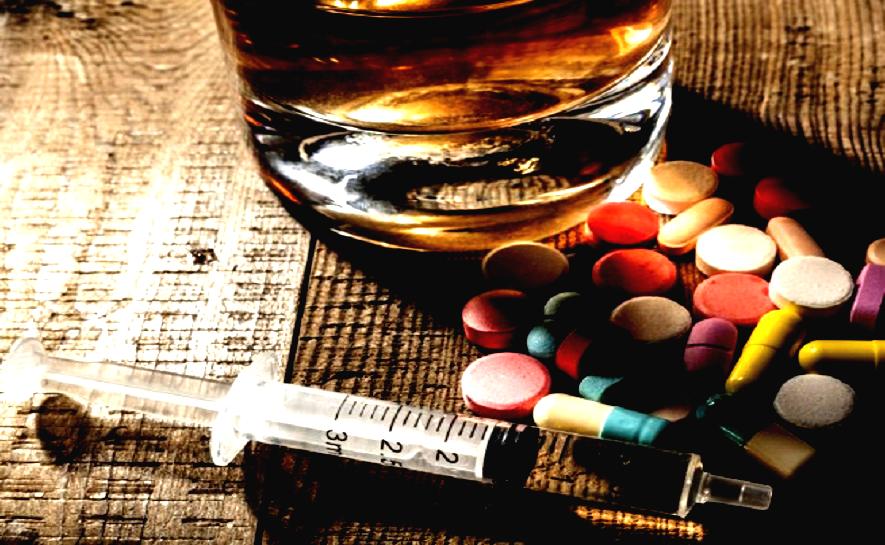Anyone can develop an addiction, regardless of background, social status or beliefs. It can be difficult to understand why some individuals are more susceptible to it than others. Regardless of a person’s moral code or the way they have been raised, there are many factors that can increase the risk of being an alcoholic or drug addict. Genetics, medical history, environment and other risk factors can contribute to addiction. Some drugs, as well as ways of taking them, are more addictive than other kinds as well.
Research continues to look into how substance abuse starts and how it grows. There are many factors that can increase a person’s risk for substance abuse, which are known as risk factors. Risk factors can influence substance abuse in many ways. The more risks that a person is exposed to, the more likely they will abuse substances and may become dependent on it.
Here are six risk factors for addiction:
1. Genetics
Addiction does not have to do with lack of morals or weak willpower. The chemical reactions that occur in a person’s brain when they are addicted are noticeably different than the ones that occur in a person without one. That is why some people can smoke cigarettes on occasion for pleasure while others need them much more frequently in order to function.
One of the major risk factors for addiction is heredity. In fact, the National Institute on Drug Abuse states that as much as half of a person’s risk of addiction to alcohol, drugs or nicotine comes down to genetics. That is why it is common for those with family members who have experienced addiction to turn into addicts themselves.
In addition, those with addictive personalities may be at risk of an array of addictions. For example, a person with an alcoholic parent may refrain from consuming alcohol but become addicted to gambling or drugs instead.
2. Environment
Environmental factors can also increase a person’s risk of addiction. Children and teens whose parents are inadequately involved in their lives may take more risks and experiment with drugs and alcohol. A young person who experiences neglect or abuse from parents may also turn to alcohol or drugs as a way to cope with their emotions.
Other risk factors for addiction include peer pressure, especially when it comes to young people. Pressure from friends and classmates to fit in with the crowd can cause people to experiment with substances that can develop into an addiction, even if the pressure is not aggressive or overt. Substances that are available in one’s social group can also increase the risk factors for addiction. For example, alcohol is often available in large quantities amongst college students and their popular social settings.
A person who is attempting to recover from an addiction has to avoid environmental triggers, which can include people, activities or settings. For example, they may have to stay away from people who they used to do drug with. Likewise, they may experience cravings in certain situations or social circles, increasing their risk of relapse. This can occur even after a person has been sober for a long period of time.
3. Dual Diagnosis
The medical community describes dual diagnosis as having both an addictive disorder as well as another medical health condition, such as anxiety or depression. Underlying mental health issues can increase a person’s risk factors for addiction. Likewise, addiction can increase the severity of existing mental health conditions, creating a vicious cycle that causes one’s addiction to progress rapidly and with severe effects. A person may feel as though using drugs or alcohol decreases their symptoms for some time, but addiction will only make things worse in the long run.
Risk factors for addiction also include other medical conditions. For example, a person who takes prescription pain medications following surgery may be at risk of prescription drug addiction. An illness or injury can also change one’s lifestyle in ways that actually encourage the use of alcohol or drugs as a way to cope.
4. Early Use
Age is another one of the risk factors for addiction. The National Institute on Alcohol Abuse and Alcoholism conducted a survey that showed that young adults from the ages of 18 to 24 were more likely to have both drug addictions and alcohol use disorders. If a person starts using drugs or alcohol when they are young, it can have an effect on their brain development and make them more susceptible to mental health disorders when they get older.
5. Drug of Choice
Some addictions can take place very quickly while others may gradually progress over a period of many months or years. The object of one’s addiction plays a role as well. Drugs like methamphetamines, cocaine and heroin are often more physically addictive than marijuana or alcohol. A person who uses heroin or cocaine is likely to experience a physically painful withdrawal period, which can make the process of developing an addiction much faster and even raise their risk of serious complications, such as overdose.
6. Method of Use
Some methods of using substances can increase a person’s risk factors for addiction. Drugs that are injected into the body or smoked are often more addictive than substances that are swallowed. When a person smokes or injects drugs, they quickly enter the bloodstream and brain, instead of passing through the liver and other organs where they are initially filtered.
Where Can You Get Help for Drug and Alcohol Addiction?

The Dawn Medical Rehab & Wellness Centre is Asia’s leading drug and alcohol treatment facility that provides superior inpatient care for detoxification and addiction treatment. The Dawn handles both alcohol and drug detoxification in order to help clients cope with their withdrawal symptoms in a safe way. Oftentimes, a person who enters drug and alcohol rehab should undergo supervised medical detox before starting their drug and alcohol addiction treatment, especially if they have been using for a long period of time or are heavily under the influence.
However, whether or not detox is needed is determined through an initial assessment that is conducted before starting drug and alcohol rehab. The Dawn’s fully equipped medical detox centre is onsite at the Thailand drug rehab centre and comes with medical staff that are available 24/7.
If detox is required and completed, then the next focus is on drug and alcohol addiction treatment. The Dawn’s comprehensive treatment programme uses a unique approach known as the Twin Pillars, which consists of addiction treatment and rehabilitation, as well as a complimentary wellness programme. Our clients also learn healthy ways to deal with any mental health issues that may co-occur with their addiction. The highly personalised drug and alcohol treatment plan offers a combination of both Eastern and Western methodology to help clients acquire the most effective tools to achieve sobriety and overcome their addiction.
Addiction Treatment & Rehabilitation
The Dawn’s first pillar focuses on rehabilitation by giving clients the vital tools that can help them overcome their negative behaviour and encourage them to become independent by giving them the tools they need to live a sober life after rehab. Essential elements of our drug and alcohol rehab programme includes MBCT, which encourages the awareness of the present moment and motivates people to handle situations without judgment, as well as the secular 12 Steps, which is world famous group therapy model that gives our clients a safe environment to discuss issues with their peers and gain social support.
Wellness Therapy
Our wellness programme makes up the second pillar and has been created to give our clients the proper tools and mental strength they require to change their lives for the better. The wellness programme is a combination of several crucial elements including meditation and mindfulness, physical exercise, spa and massage therapy and diet.
Take Control of Your Life at The Dawn Rehab Thailand
If you notice you have several risk factors for addiction or suspect you have an addiction, it’s important to reach out to someone as soon as possible. Contact us today to receive a no-obligation assessment and find out how we can help.
Related Posts
 Can Connection Really be the Cure for Addiction?
Johann Hari’s NY Times bestseller about the causes of addiction and depression brings a lot to the table. So did his TED talk in 2015 at the TED Global conference...
Can Connection Really be the Cure for Addiction?
Johann Hari’s NY Times bestseller about the causes of addiction and depression brings a lot to the table. So did his TED talk in 2015 at the TED Global conference...
 Why Drugs Are Addictive : What Turns a Regular Person into an Addict?
The drugs that harm your body, your relationships and your community have the highest possibility of addiction and abuse. Why are some drugs so irresistible that even people who use...
Why Drugs Are Addictive : What Turns a Regular Person into an Addict?
The drugs that harm your body, your relationships and your community have the highest possibility of addiction and abuse. Why are some drugs so irresistible that even people who use...
 Nature Vs. Nurture: Which Makes Us Addicted? Both, Actually
Is drug and alcohol addiction inherited? Or is it caused by environmental factors? Most people are aware that addiction seems to run in the family, but you have probably also...
Nature Vs. Nurture: Which Makes Us Addicted? Both, Actually
Is drug and alcohol addiction inherited? Or is it caused by environmental factors? Most people are aware that addiction seems to run in the family, but you have probably also...
 Drug Classifications: A Comprehensive Guide
Drug classifications have many different forms, from chemical content to similar effects and legal classifications. Read on to learn about drug classifications.
Drug Classifications: A Comprehensive Guide
Drug classifications have many different forms, from chemical content to similar effects and legal classifications. Read on to learn about drug classifications.





